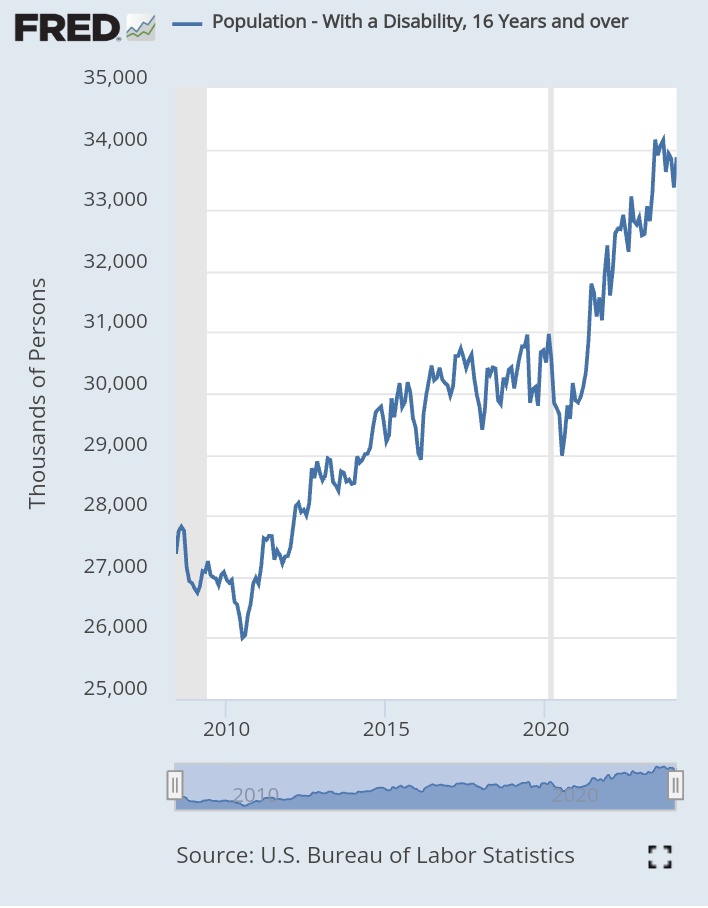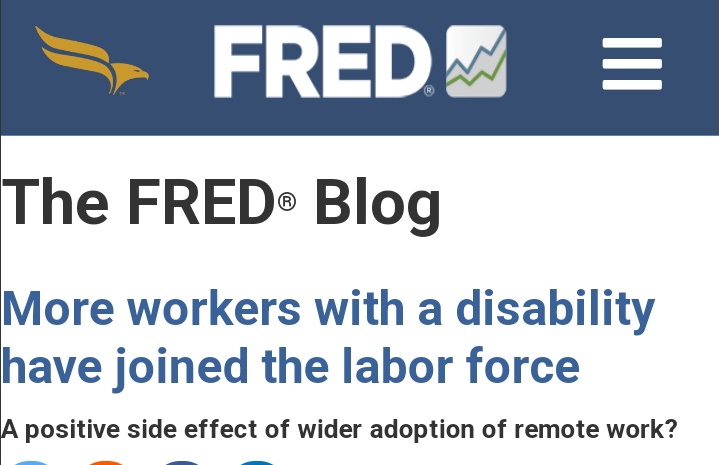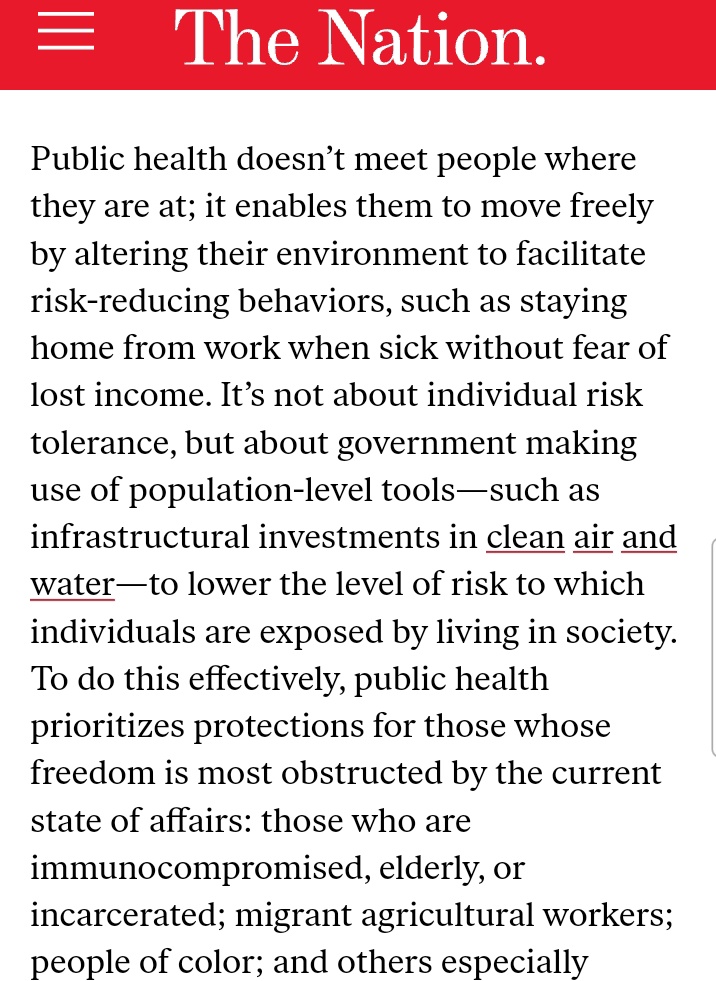Interpreting Stats 🧵
The organization that provided this graph (from US DoL data) has also suggested that an ⬆️ in the % of the US workforce that's comprised of disabled workers demonstrates that a greater number of disabled people are working than worked in the past.
(1/11)
The organization that provided this graph (from US DoL data) has also suggested that an ⬆️ in the % of the US workforce that's comprised of disabled workers demonstrates that a greater number of disabled people are working than worked in the past.
(1/11)

They further suggested that new policies like expanded WFH may have enabled this increased # of disabled ppl to achieve and maintain employment - a 2023 blog post notes this may be "positive side effect of remote work."
It's possible, but are we sure?
(2/11)
It's possible, but are we sure?
(2/11)
The fact that "More workers with a disability have joined the labor force" doesn't tell us much on its own. Is it simply that a larger % of disabled ppl are working than worked previously, or is it that there are simply + disabled *ppl* than in the past (which there are,
(3/11)
(3/11)

& which could cause the total % of the workforce that's disabled to rise, as disabled ppl now represent a bigger chunk of the entire population).
Or is it "both & more?" Quite possibly. And then the question becomes "how much of the variance we're seeing over time in
(4/11)
Or is it "both & more?" Quite possibly. And then the question becomes "how much of the variance we're seeing over time in
(4/11)
disability w/in the US workforce is due to more of the population being disabled, & how much is due to a greater recent inclination of the disabled to work?"
We also know nothing for certain about the "whys" motivating people with disabilities to work. For example,
(5/11)
We also know nothing for certain about the "whys" motivating people with disabilities to work. For example,
(5/11)
The blog title ("More workers w/ a disability have joined...") implies that a disability came first, & then those folks joined the workforce anyway. But the fact that there is so much *new* disability may mean that there's been a rise in previously non-disabled folks who
(6/11)
(6/11)

*already had jobs,* became disabled, & just haven't left yet.
This seems plausible, as it can take time for newly disabled people to figure out what they can/can't accomplish w/in their new situation. And sometimes those who are still able to work find later that they
(7/11)
This seems plausible, as it can take time for newly disabled people to figure out what they can/can't accomplish w/in their new situation. And sometimes those who are still able to work find later that they
(7/11)
no longer can, esp. if a disability is progressive.
Or, if disabled ppl *are* entering the workplace anew in greater numbers, could that reflect a worsening economic picture for those folks, such that ppl who really weren't & still aren't able to work now feel compelled
(8/11)
Or, if disabled ppl *are* entering the workplace anew in greater numbers, could that reflect a worsening economic picture for those folks, such that ppl who really weren't & still aren't able to work now feel compelled
(8/11)
to try anyway, b/c their financial situations have become so desperate, esp. as medicaid coverage and other early-pandemic social support programs have been rolled back?
We don't know, just from this one graph. It's a really interesting graph, b/c it tells us that
(9/11)
We don't know, just from this one graph. It's a really interesting graph, b/c it tells us that
(9/11)
*something* is happening, but we don't know what, just from this image.
Could greater work accessibility for the disabled be a major factor here, as the posting org. (a regional reserve bank) suggested? Sure, and that would be *terrific.* But we need to dig deeper.
(10/11)
Could greater work accessibility for the disabled be a major factor here, as the posting org. (a regional reserve bank) suggested? Sure, and that would be *terrific.* But we need to dig deeper.
(10/11)
Moral of the 🧵: even when a chart/graph paints a dramatic picture, don't assume it (or the attribution that goes with it) tells the whole story of "why." The numbers may be "right," yet the interpretation could still be incorrect or incomplete.
(11/11)
(11/11)
• • •
Missing some Tweet in this thread? You can try to
force a refresh







